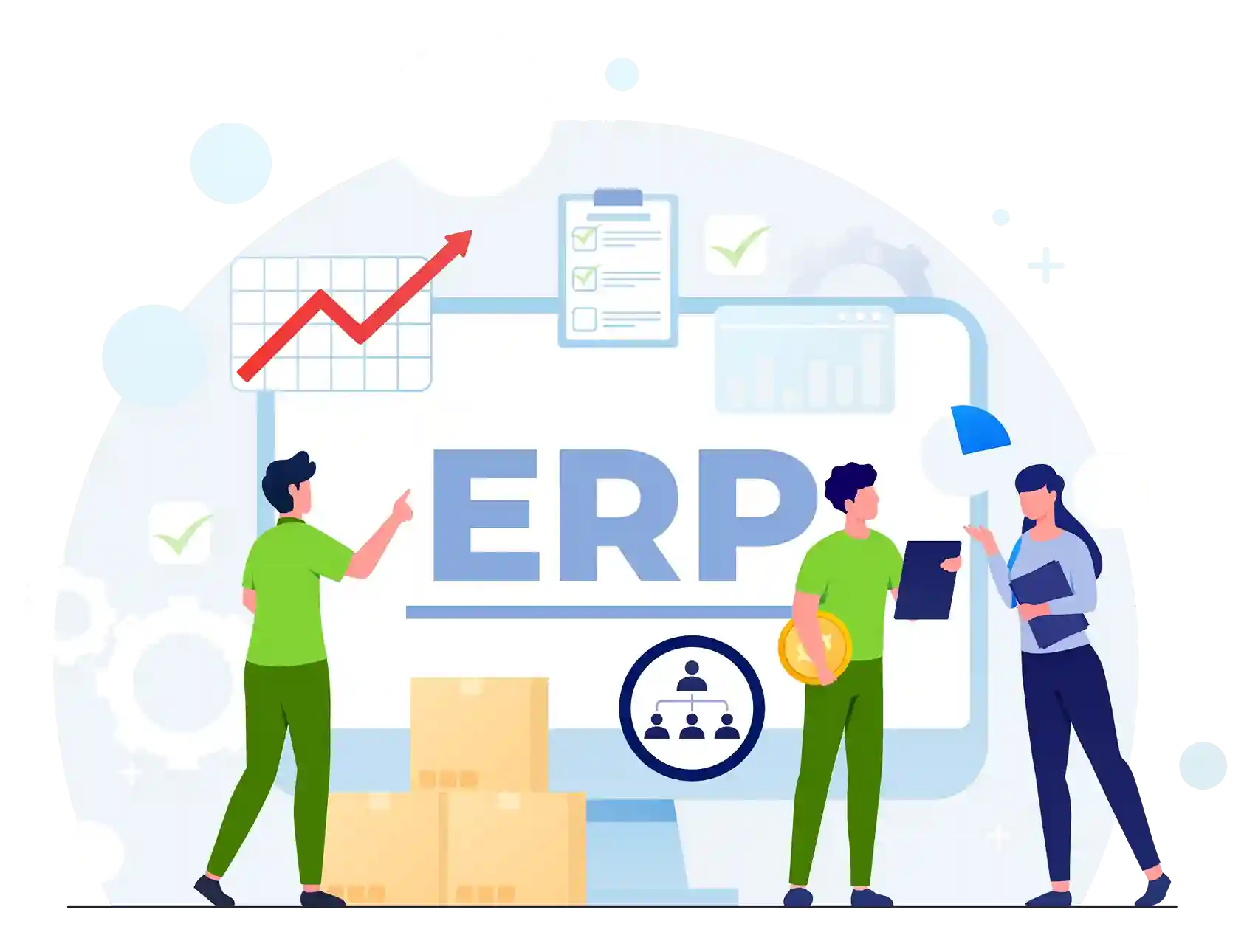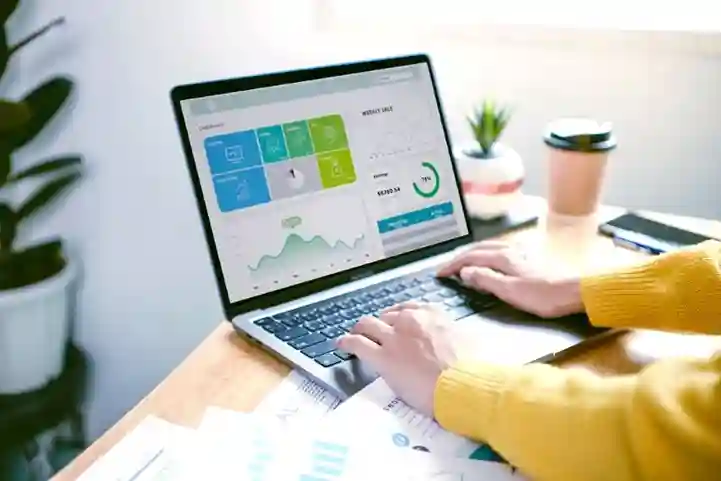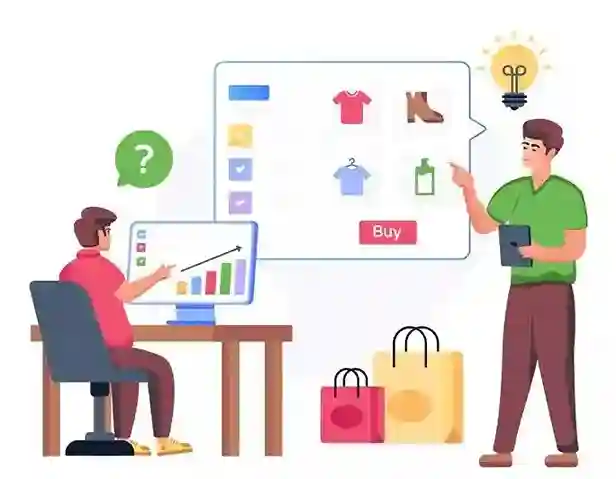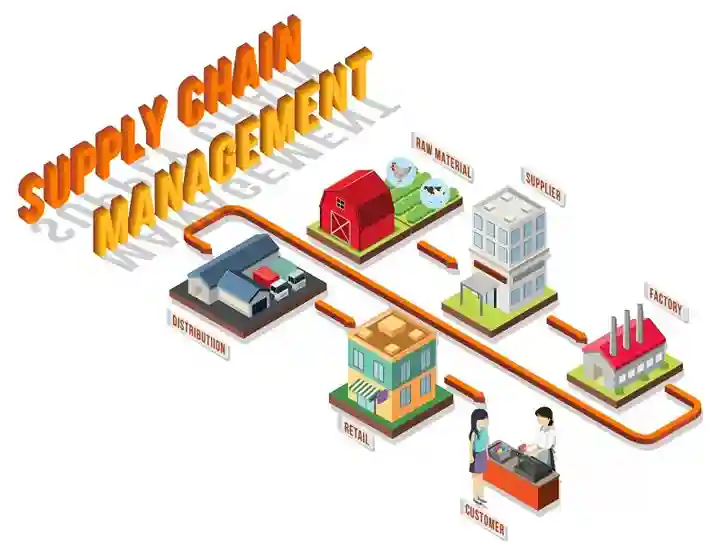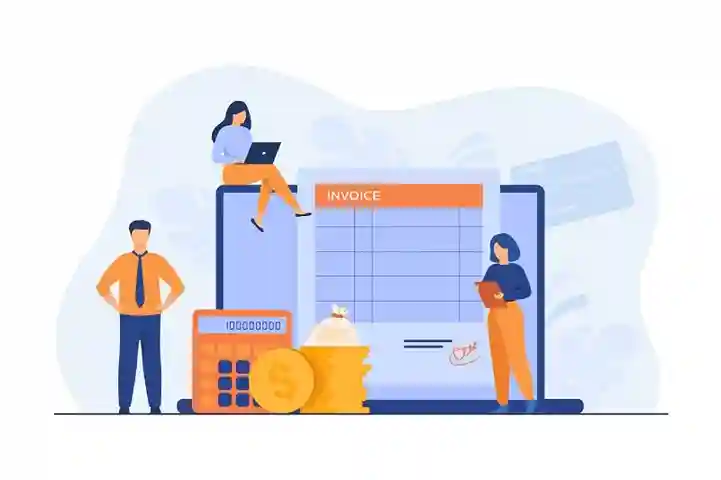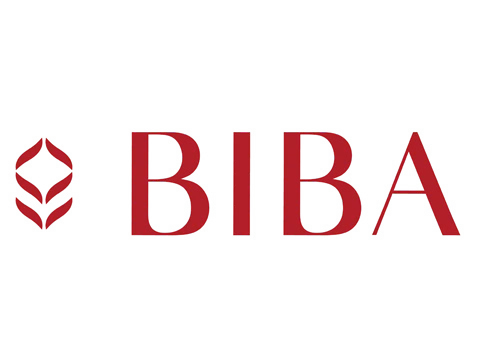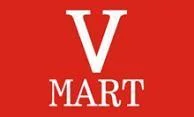ERP (Enterprise Resource Planning) refers to software packages that bring together all of an organization's data and related operations. ERP software has become a competitive advantage for the major retail stores by facilitating internal business processes.
ERP software makes it possible for multiple departments to communicate using a single database. ERP systems are made up of various interconnected modules, such as Order Entry, Accounts Payable, Accounts Receivable, Purchasing, etc., each with a specialized function. The enterprise-wide reach of retail ERP solutions provides the company with cross-functional capabilities.
Let's understand Enterprise Resource Planning (ERP) and why your retail business requires ERP software
Numerous difficulties confront retail establishments daily. Retail establishments encounter many challenges since they are more directly related to their consumers and end-users than any other business segment. Three of these companies' most persistent problems are examined in the following sections. Software that helps retail establishments of all sizes deal with difficulties and overcome challenges is becoming increasingly popular. An enterprise resource planning (ERP) programme is used to coordinate the day-to-day operations of a company's manufacturing and front-end retail departments. There is a wide range of financial and operational software out there, but most of it is limited in its ability to help businesses expand in the future. A company's needs evolve and grow, and its systems should keep up with these changes and developments.
Core elements of an ERP system for the retail sector
For employees to make better decisions faster, a cloud-based ERP solution incorporates components that ensure that every business sector inside the organisation relies on a single source. Retail ERP systems have the following features as the foundation of their systems:
Planning for the retail sector
Retailers may adapt their planning processes to meet the demands of the current environment thanks to ERP. A retail store's revenue can be increased by implementing various tactics.
Operation of Retail Locations
ERP systems aid the store management function for retail. Market basket analysis, merchandising, inventory management, personnel management, and a host of other responsibilities fall within the purview of retail chain operations.
Keeping an eye on your stock
This component helps shops of all sizes keep track of their inventory and keep track of their products. Inventory control is the practice of keeping tabs on the inflow and outflow of items from existing stock. As raw materials, work in progress (WIP), and finished commodities, inventory often accounts for most of a company's working capital.
Management of the Supply Chain
Retailers may use ERP to control their whole supply chain. ERP systems may guarantee that all-important stakeholders have access to the information they need, regardless of where the products or materials are shipped.
Predicting Consumer Needs
It's easier and more accurate using ERP software for retail to keep track of historical patterns and predict future demand. ERP for retail companies helps businesses satisfy their customers, increase sales, and minimise inventory expenses.
Management of Vendor Relationships
Gather information on the provider, such as contact information, delivery time, and other aspects. Perform a comparison of ERP providers and select the best one for your retail business.
Management of Customers
Automated methods for recording client data, preferences, and behaviours make customer management easier using ERP for retail. ERP for retail helps you keep track of and grow the lifetime value of your customers. Attract new clients, pinpoint your most loyal ones, keep them interested, and increase your company's name recognition.
Accounting and Budgeting
ERP for retail delivers a comprehensive collection of tools required to handle all financial aspects of your organisation while keeping a high degree of regulatory compliance, allowing retailers to manage their accounting.
Integration of databases
In addition to providing real-time reporting, a comprehensive ERP for retail helps manage processes. A retailer's financial health can be better understood when ERP makes the necessary data available. Retail ERP systems incorporate this component to provide customised compliance reports.
To sum up
A sound retail ERP system organises all processes and activities. Daily transactions are now much more straightforward and streamlined. Moreover, ERP as a retail management software solution improves overall performance and profits. Every day, retailers have to cope with unpredicted stock levels, manage people, personnel, bookkeeping, and avoid costly mistakes. Thus, ERP is a terrific tool for keeping your retail businesses competitive.
